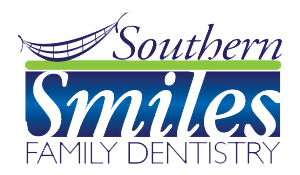Diet & Snacking
Q: What is a healthy diet for my child?
A: A healthy diet is a balanced diet that naturally supplies all the nutrients your child needs to grow. And what’s a balanced diet? One that includes the following major food groups every day: Fruits and Vegetables; Bread and Cereals; Milk and Dairy Products; Meat, Fish and Eggs.
Q: How does my child’s diet affect her dental health?
A: She must have a balanced diet for her teeth to develop properly. She also needs a balanced diet for healthy gum tissue around the teeth. Equally important, a diet high in certain kinds of carbohydrates, such as sugar and starches, may place your child at extra risk of tooth decay.

Q: How do I make my child’s diet safe for his teeth?
A: First, be sure he has a balanced diet. Then, check how frequently he eats foods with sugar or starch in them. Foods with starch include bread, crackers, pasta, and such snacks as pretzels and potato chips. When checking for sugar, look beyond the sugar bowl and candy dish. A variety of foods contain one or more types of sugar, and all types of sugars can promote dental decay. Fruits, a few vegetables, and most milk products have at least one type of sugar.
Sugar can be found in many processed foods, even some that do not taste sweet. For example, a peanut butter and jelly sandwich not only has sugar in the jelly but may have sugar added to the peanut butter. Sugar is also added to such condiments as catsup and salad dressings.
Q: Should my child give up all foods with sugar or starch?
A: Certainly not! Many provide nutrients your child needs. You simply need to select and serve them wisely. A food with sugar or starch is safer for teeth if it’s eaten with a meal, not as a snack. Sticky foods, such as dried fruit or toffee, are not easily washed away from the teeth by saliva, water, or milk. So, they have more cavity-causing potential than foods more rapidly cleared from the teeth. Talk to your pediatric dentist about selecting and serving foods that protect your child’s dental health.
Q: Does a balanced diet assure that my child is getting enough fluoride?
A: No. A balanced diet does not guarantee the proper amount of fluoride for the development and maintenance of your child’s teeth. If you do not live in a fluoridated community or have an ideal amount of naturally occurring fluoride in your well water, your child needs a fluoride supplement during the years of tooth development. Your pediatric dentist can help assess how much supplemental fluoride your child needs, based upon the amount of fluoride in your drinking water and your child’s age and weight.
Q: My youngest isn’t on solid foods yet. Do you have suggestions for her?
A: Don’t nurse your daughter to sleep or put her to bed with a bottle of milk, formula, juice, or sweetened liquid. While she sleeps, any unswallowed liquid in the mouth supports bacteria that produce acids and attack the teeth. Protect your child from severe tooth decay by putting her to bed with nothing more than a pacifier or bottle of water.
Q: Any final advice?
A: Yes. Here are tips for your child’s diet and dental health.
- Ask your dentist to help you assess your child’s diet.
- Shop smart! Do not routinely stock your pantry with sugary or starchy snacks. Buy “fun foods” just for special times.
- Limit the number of snack times; choose nutritious snacks.
- Provide a balanced diet, and save foods with sugar or starch for mealtimes.
- Don’t put your young child to bed with a bottle of milk, formula, or juice.
- If your child chews gum or sips soda, choose those without sugar.
